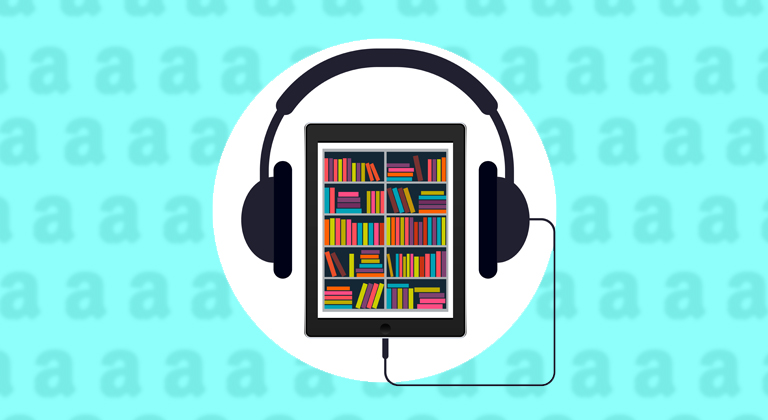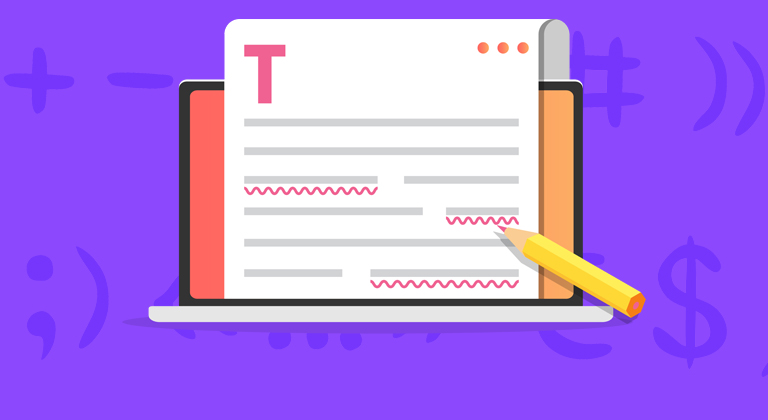Amazon’s Virtual Voice poised to change Audiobook Industry
This December, Amazon invited a number of self-published authors to beta-test Virtual Voice – a service that promises to make the production and distribution of audiobooks as easy, seamless, and accessible as Kindle Direct Publishing was for authors of the written word. However, many audiobook producers and voice actors are upset at this platform – arguing that it will devastate their business model, and ultimately diminish the quality of audiobooks being offered to the public.
Today, Ginger takes a look at this service and why, while not the first of its kind, it is likely to become the most dominant. He also examines what it means to the industry, both from the perspective of authors as well as from the perspective of the human narrators and audiobook producers that it is poised to displace.
Amazon revolutionized the publishing industry on November 19, 2007 with the launch of the Kindle, an e-reader designed to provide readers with a digital alternative to traditional books.
The Kindle’s introduction marked a significant turning point in the publishing industry, suddenly making it easier and more affordable for readers to instantly access a vast library of digital content than it ever had been before.
It also transformed publishing for would-be authors, presenting a novel new platform for writers to publish and sell their work which didn’t involve acquiring a literary agent first.
Kindle Direct Publishing (KDP) allowed any author from anywhere to publish and distribute their books directly to Kindle users, circumventing the traditional publishing route entirely. These books then appeared right alongside traditionally published books on Amazon’s digital bookshelves, democratizing the once tightly-controlled publishing process and empowering countless aspiring authors to bring their stories to a global audience.
As you can imagine, this quickly disrupted the established norms of the industry, and in the years that have followed, its impact on the publishing landscape has been profound. According to Amazon’s 2020 data, over 1.7 million authors worldwide have self-published through KDP, contributing to the creation of more than 3.4 million Kindle books. This has led to a significant increase in the volume of available content, challenging traditional publishing models while at the same time broadening the literary landscape for eager readers.
Independent authors, once marginalized by traditional publishing gatekeepers, found a viable platform in KDP for sharing their stories directly with readers. Many have since gone on to become incredibly successful as a result – like Frieda McFadden, who I wrote about just last week.
Today, the ranks of New York Times best-sellers are filled with self-published titles from authors like McFadden – something which would have been unthinkable less than two decades ago.
However, the rise of Kindle Direct Publishing and the subsequent success of self-published authors sparked a very negative reaction from traditional publishers. Many expressed skepticism and concern about the changing dynamics of the industry. Established publishers initially viewed self-publishing with a degree of apprehension, questioning the quality control and editorial standards of works brought to market through platforms like KDP. In a 2014 interview with The Guardian, literary agent Andrew Lownie remarked on the skepticism within the traditional publishing industry, stating: “Traditional publishers like to think that they are the gatekeepers of literary excellence.”
But that’s clearly no longer the case. The success stories of self-published authors, many of whom have achieved significant sales and acclaim, has permanently challenged the notion that traditional publishers are the sole arbiters of literary merit. In fact, since 2007, most traditional publishers have reluctantly adapted many of the publishing strategies of self-published authors into their own process, and begun signing many successful self-published authors into their roster of writers. They’re struggling to survive while thousands of self-published authors are thriving.
That explains why the tension between traditional and self-publishing models persists – and demonstrates how Amazon are about to throw even more gasoline onto that fire with the beta launch of their latest industry-disrupting service: Virtual Voice.
What is Virtual Voice?
Virtual Voice is a brand new self-publishing service that might end up being even more disruptive to the industry than Kindle Direct Publishing. It’s a self-service platform that enables KDP authors to quickly and easily produce an audiobook version of their already-published eBook that uses virtual voice narration rather than a real, live, human voice artist.
With this speech-to-text technology, authors will now be able to effortlessly transform an eBook into an audiobook from the comfort of their home computer in just a few simple steps.
First, however, let’s be clear that Amazon isn’t quite pioneering or innovating too much here, as Google launched a very similar service last year. However, if you had no idea that Google’s service existed, you’re not alone. It seems like very few authors are aware of it, just as very few authors pay much attention to the Google Play bookstore in the first place.
The real gamechanger here is that the technology is now being adopted into a service by Amazon, the undisputed heavyweight of the self-publishing industry. By integrating this self-service audiobook creation platform into KDP, Amazon is virtually assuring their dominance in this space from the get-go.
With Virtual Voice, authors start by selecting one of their qualifying eBooks from their KDP dashboard. Then, they can explore various virtual voices and choose the one they want to “read” their book. The platform also allows you to preview and customize the audiobook as you edit it.
Once done, authors can set a preferred list price ranging from $3.99 to $14.99, from which they’ll receive a 40% royalty once published.
Each audiobook will go live within 72 hours of clicking the “Publish” button – reaching audiences wherever Audible titles are sold. Audiobooks produced through KDP, specifically from eBooks in KDP Select, will be featured in the Audible Plus catalog and qualify for a share of the KDP Select Global Fund in addition to any regular purchases or royalties – opening up a brand new revenue stream for authors without any of the initial upfront costs of professional audiobook production.
(Although, if preferred, KDP authors can also continue to collaborate with professional narrators and voice talents through ACX – although this still comes with much longer wait times and requires royalty sharing or an outright fee to the voice talent.)
For those who listen to audiobooks, the arrival of Virtual Voice will be seamless to the existing customer experience. Audible users will be able to easily discover and enjoy audiobooks featuring virtual voices, and audiobooks created with Virtual Voice will be clearly marked to avoid any confusion with traditional, human-narrated audiobooks. Customers will be able to listen to samples prior to purchase, just like with any other audiobook, and decide for themselves whether they want to give this new technology a chance.
Finally, just like with traditionally published audiobooks, Virtual Voice books will be available using Audible Credits, making them extremely accessible to subscribers.
The genius behind Amazon’s offering is that it fits seamlessly into their existing infrastructure – meaning the impact of Virtual Voice will become apparent extremely quickly. The real question, therefore, is whether this technology will ultimately be a good thing, or a bad thing.
The Potential Impact of Virtual Voice
In technological terms, virtual voice narration has always been an inevitability, and it’s perhaps unsurprising that Amazon ended up being one of the pioneers behind providing this technology to authors – just like they were with the introduction of Kindle Direct Publishing in 2007.
Virtual Voice is poised to revolutionize the audiobook industry, potentially leading to a significant surge in the production of audiobooks by KDP authors. Currently, only 4% of titles self-published through KDP have audiobook versions, highlighting the untapped potential that Virtual Voice brings to the table. This is because it previously took a significant financial investment to produce an audiobook of the quality required for publishing on Audible – with authors paying several thousand dollars to produce a single book, or having to split their royalties directly with narrators.
But now, hundreds of thousands of authors will gain the ability to produce audiobooks without any of that investment – understandably raising concerns among traditional voice talents and audiobook producers who view Virtual Voice as a threat not just to their livelihoods, but also the artistic nuances they bring to narration.
While Amazon emphasizes that all audiobooks created using Virtual Voice will be clearly labeled, allowing customers to discern between human-narrated and synthetic-narrated content, some voice talents and audiobook producers are understandably likely to harbor reservations. Concerns around the potential devaluation of the craft and the unique qualities that human narrators bring to storytelling are certainly warranted.
Traditional narrators and producers are also right in worrying that Virtual Voice could result in a saturation of the market with machine-generated narration, impacting the perceived value and quality of audiobooks as a whole.
Additionally, if authors begin to turn to the convenience and cost-effectiveness of services like Virtual Voice, it will obviously lead to loss of job opportunities for human narrators. This shift poses a challenge to the industry to find a balance that accommodates technological advancements while preserving the artistic integrity and employment opportunities for voice talents in the audiobook landscape. We are already seeing similar things happening in other aspects of publishing, such as with the rise of AI generated images and their affect on cover designers and digital artists.
Conclusion
If Virtual Voice takes off, it will likely end up leading to one of the biggest changes to the publishing landscape to have occurred this decade – but it might be another decade before we truly understand what impact it will have. I’ve experimented with the technology already and found it useless for the majority of my books, since they have two or more narrators (currently Virtual Voice only allows a single digital narrator for your entire book.) However, I did try it with one of my non-fiction books and while I didn’t ultimately publish it, the quality of the narration was much, much better than I’d imagined it would be.
Strange new times lie ahead. What do you think Virtual Voice (or other, similar services) means for authors and the industry? We’d love to hear your opinion. Don’t be shy about leaving a comment below!












Dont enjoy virtual voice narration. Expressionless and soulless. Will avoid these.
I already am giving virtual voice a place in my library thru the Pittsburgh Vampire Series. But virtual voice can’t hold a candle to the amazing Tristan James.
The difficulty I’m having with this is that the virtual voice that I just listened to is a knockoff of a major narrator’s voice. There’s no doubt that the virtual voice I just heard was “Teddy Hamilton,” only computer generated.
“(Although, if preferred, KDP authors can also continue to collaborate with professional narrators and voice talents through ACX – although this still comes with much longer wait times and requires royalty sharing or an outright fee to the voice talent.)”
“an outright fee”? The very gall of a narrator, to expect to be paid for their work. As if having to wait for something weren’t bad enough. Audible set up sharing royalties to let an author work with a narrator without having to pay any of those rapacious up-front costs, but thank goodness you’re here to steer authors clear of that too.
We can’t stick our heads in the sand about generated content changing everything. It’s inevitable. Are you excited at the prospect of more generated books on the market, too? Technically Audible and Amazon don’t need anybody to do anything if they have a handful of prompt-creators. Feed your books into the engine, make new ones, recommend those to your readers, solve the problem of sharing royalties altogether.
I have many favorite narrators and I hate the virtual voice. I hope my favorite authors don’t switch to this.
Apple has an AI-narration program that opened to indies this past summer. I entered one of my novels in it, and the audiobook went live in September. I was surprised and pleased at the high quality of the narration. The wait times are significant, however. I currently have 4 more novels in the queue, where they have been since August.
I have been listening to audiobooks in my car since the 1980s, when they were on cassettes and not CDs. I’ve listened to hundreds if not thousands of books since then. Mostly fiction with one voice narrating the story, no matter how many POV characters there were.
Having one voice tell a story with more than one POV character has never bothered me.
Still, I have enjoyed the few that had a cast of voices more, but that never stopped me from listening to audiobooks with only one narrating voice, since most of them are produced that way.
I’m listening to one now, when I’m in the car going somewhere, the second time. It’s called Devotion. A film is coming out or its already out, based on this nonfiction novel that has more than one POV character, female and male.
Yet the audio version only has one male narrator, and that doesn’t distract me.
And, a few days ago, I also published one of my thrillers through Amazon’s virtual voice BETA program. My thriller has more than one POV character both male and female. Listening to the narrator as I was editing it, was like hearing someone with an impressive voice reading my novel to me. Having one voice still didn’t bother or distract me.
Not interested. I paid a human for my first audiobook production and live in a town where voice actors are part of our economy (FUNimation / Crunchyroll has an HQ down here). My sister-in-law used to act for them. I have several friends who are up-and-coming actors who would love to do this kind of work.
If you just want a text to speech reader to read to you while you do stuff, and I get it, I’ve heard some “AI” text to speech readers and have used Natural Reader for TTS editing – maybe this works. And maybe new generations will find this to be the norm: synthetic voices who read something so you can be hands free.
In this shift, I think human-read ones will stand out as something special, will win the awards, will possibly become a differentiator for traditional publishers and a “leg up” on Indie authors who choose the AI voices.
In the end it’ll be for the reader / the consumer to decide what they prefer.
Yes, KDP revolutionized the publishing industry. But Vella hasn’t caught on the way that some other subscription publishers have. So it’s not like everything Amazon does in this space proves out.
Yes, the possibility will be there that those who couldn’t (for various reasons) offer audiobooks will now be able to. Again, it remains to be seen whether the majority of readers will want / accept this and come away with the potential attachment that can be realized with human narrators – author or VA.
If it ends up making a book’s experience “less” to a reader (or aggravate anyone who has a real aversion to AI – as it is still a polarizing topic to many), then authors may still choose no audiobook over an off-putting one. And traditional publishers, assuming they stick to their guns, could end up rising above in this growing space.
(As an aside, I’d be curious what the marketing psychologists say… And for more insight on the beta testing. Amazon worked with ?? authors on the beta. Who did they work with as readers on the beta? What were their psychographics and are they indicative of the audiobook market as a whole? And most importantly, will Amazon provide any of that info, or just some anecdotal reader reviews to support their service?)
In the end this is one of the few places I won’t be moved. Won’t do it. Just won’t. No one will convince me that even if the market shifts to ACCEPT synthetic voices, that the experience would be PREFERRED over human readers. And so therein lies the answer.
A problem may arise which could diminish the listener’s experience with fiction books.
If KDP uses an e-Book as it is written for text reading there will be a lot of “he said,” and “she said,” attributions in the audio version, thereby cluttering up the flow of information. I thought that an e-Book currently being converted to an audiobook needed to be cleaned up to remove most of these character attributions before being forwarded to the voice talent. However, it sounds like Virtual Voice will simply leave these attributions in the audio version.
Non-fiction may fare better in this regard.
I think you have a point wrt the listener’s experience, and that non-fiction is a more likely market.
I think whether or not this is a brilliant change will depend on the quality of the voice, how well the machine reads, whether it can make separate characters sound different and how it will respond to regional accents. If all these things are done well, then it will be a game-changer.
Having tried a mechanical voice before I am skeptical but willing to believe things have changed.
I think this just goes to show what a different world I live in than the average author. I had no idea that GooglePlay’s service wasn’t well known. I’ve done dozens of live chats and consultations with authors on this service.
I had no idea that GooglePlay’s service wasn’t well known. I’ve done dozens of live chats and consultations with authors on this service.
One of the brilliant parts of GP’s offering is the fact that you can do lots of voices in the same audiobook, giving you the ability to assign a voice to a character like you would a full cast audiobook production. The various voices have accents, can be children’s voices to the elderly, can be sped up or slowed down, and can be corrected to pronounce a word correctly (like names).
But even more importantly, you can export the GP audiobook and publish it elsewhere, like your own site, YouTube, and as of a few days ago, Findaway Voices.
Also, just as an FYI, Apple also does this with audiobooks but their set up is quite different from what GP is doing.
Anyway, thanks for sharing this update! Useful as always.
E
To Erin & Ginger — Do either or both platforms allow for a single fiction virtual narrator to reflect different characters in the novel, rather than using different voices (as in GogglePlay)?
No.